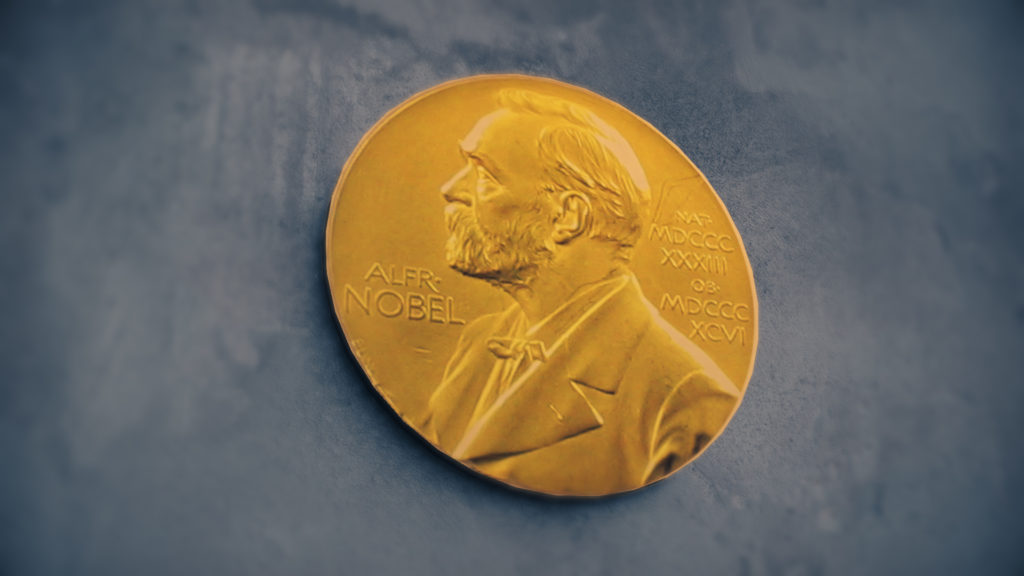LONDON — A trio of scientists who opened new doors in our understanding of the structure of proteins — the fundamental building blocks of biology — and even came up with ways to create new proteins won the Nobel Prize in chemistry Wednesday.
The prize went to David Baker of the University of Washington, and to Demis Hassabis and John Jumper, who work at Google DeepMind in London. Baker will receive half the 11 million Swedish kronor (just over $1 million) prize, while Hassabis and Jumper will split the other half.
advertisement
Proteins consist of hundreds of thousands of atoms, the arrangement and position of which define that particular protein’s biological function. So “to understand how life works, we first need to understand the shape of proteins,” Heiner Linke, the chair of the Nobel chemistry committee, said Wednesday at a press conference announcing the winners.
Researchers had long dreamed that there could be a way to predict the 3-D structure of proteins from just knowing the sequences of their individual components that are encoded in DNA. But, Linke said, “for several decades, this was considered impossible.”
Hassabis and Jumper proved that conventional wisdom wrong, with discoveries in 2018 and 2020 that relied on artificial intelligence to be able to predict the structure of essentially any protein in nature.
advertisement
Scientists had also dreamed of the ability to build new proteins — to effectively learn how to use nature’s tools in our own customized ways. Baker helped realize that aspiration dating back 20 years ago. He developed computational tools that enable researchers “to design spectacular new proteins with entirely novel shapes and functions, opening endless possibilities for the greatest benefit to humankind,” Linke said.
Prior to this year, there were 194 chemistry laureates, including eight women.
Proteins allow for just about every aspect of human existence. They make up our bones and tissues, drive our muscles, keep our brains firing, protect us from infections, and allow us to communicate. Each one is in turn made up of a string of amino acids that gets folded into a complex 3-D shape.
In 2003, Baker, who was born in 1962 in Seattle, and colleagues made their own string of those amino acids, forming a protein that was unlike anything seen in nature. They also developed a computational program that could spell out the protein’s structure. This breakthrough in what’s called computational protein design has made it possible for scientists to sculpt novel proteins that are being explored as medicines, nanomaterials, and a host of other tools.
“David Baker opened up a completely new world of protein structures that we had never seen before,” Johan Åqvist, a member of the Nobel chemistry committee, said at the press conference. “It’s a mind-blowing development.”
Scientists had for years also been at work at trying to predict the structure of a protein just from looking at the genetic sequences that contain the instructions for making them. After all, the specifics of the protein’s shape are also encoded in those sequences.
But researchers had trouble developing methods that could predict those structures with better than about 40% accuracy.
Then came Hassabis, 48 and from London, and Jumper, who was born in 1985 in Little Rock, Ark. With their algorithmic AlphaFold model, which the researchers have honed over the years, they created a platform that reached 90% accuracy in its predictions of the structures of hundreds of millions of known proteins.
advertisement
“Protein structure prediction with AlphaFold2 caused a complete revolution in structural biochemistry,” Åqvist said.
In 2021, Alphabet, DeepMind’s parent company, spun out a new outfit called Isomorphic Labs that aims to apply DeepMind’s protein-folding work to drug discovery.
The UW and DeepMind teams are sometimes portrayed as rivals in the computational biology field. But Baker, who called into the press conference in Stockholm Wednesday morning, said that in part because of DeepMind’s work, the UW researchers have started relying more on artificial intelligence in their protein design, which “greatly increased the power and accuracy.”
Baker said he was sleeping when he received the Nobel call early Wednesday morning, as is often the case for laureates in the U.S. When he was told he had won the prize, his wife started yelling, drowning out the person on the phone. He had to go to another room so he could hear the rest of the call, he said.
Asked by one journalist to pick his favorite protein, Baker demurred, saying he didn’t want to identify just one. But he did highlight one that he and his colleagues had crafted that could potentially block the coronavirus behind Covid-19 from infecting cells, hinting at one of the applications of his discoveries that researchers are now pursuing.
“I’ve been very excited about the idea of a nasal spray of little designed proteins that would protect against all possible pandemic viruses,” he said.

